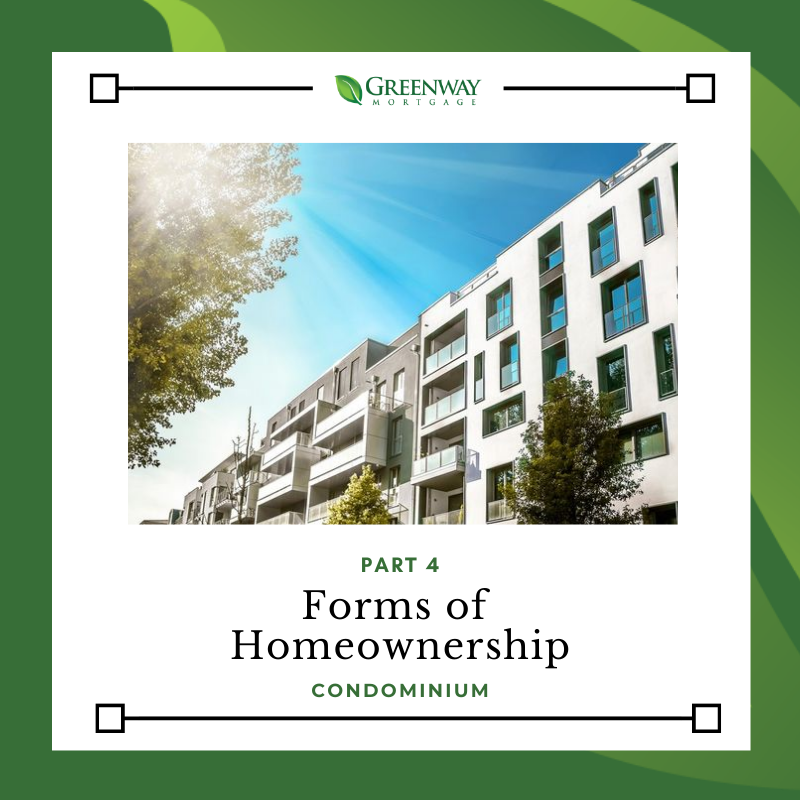
In today's blog (Part 4), we'll take a look at Condominium Ownership. In case you missed Part 1 through 3 of this 4-part series you can find them here:
Part 1: Forms Of Homeownership: Fee Simple
Part 2: Forms of Homeownership: Leasehold
Part 3: Forms of Homeownership: Housing Cooperative
Moving on to condominiums! A condominium is one of a group of housing units where the homeowners own their individual unit space, and all the dwellings share ownership of common use area (hallways, parking lots, roads, etc). The main difference between condos and regular single homes is that there is no individual ownership of a plot of land. All the land in the condominium project is owned in common by all the homeowners. Condominiums frequently levy monthly “common charges” to each owner to help pay for the maintenance of the commonly owned areas.
Condominiums manage their properties through boards and/or associations with members being elected from all owners, and can also be assisted by a management company. Rules and regulations governing the condominiums are established by the rules of the development’s incorporation and may be modified by these boards.


.jpg)

